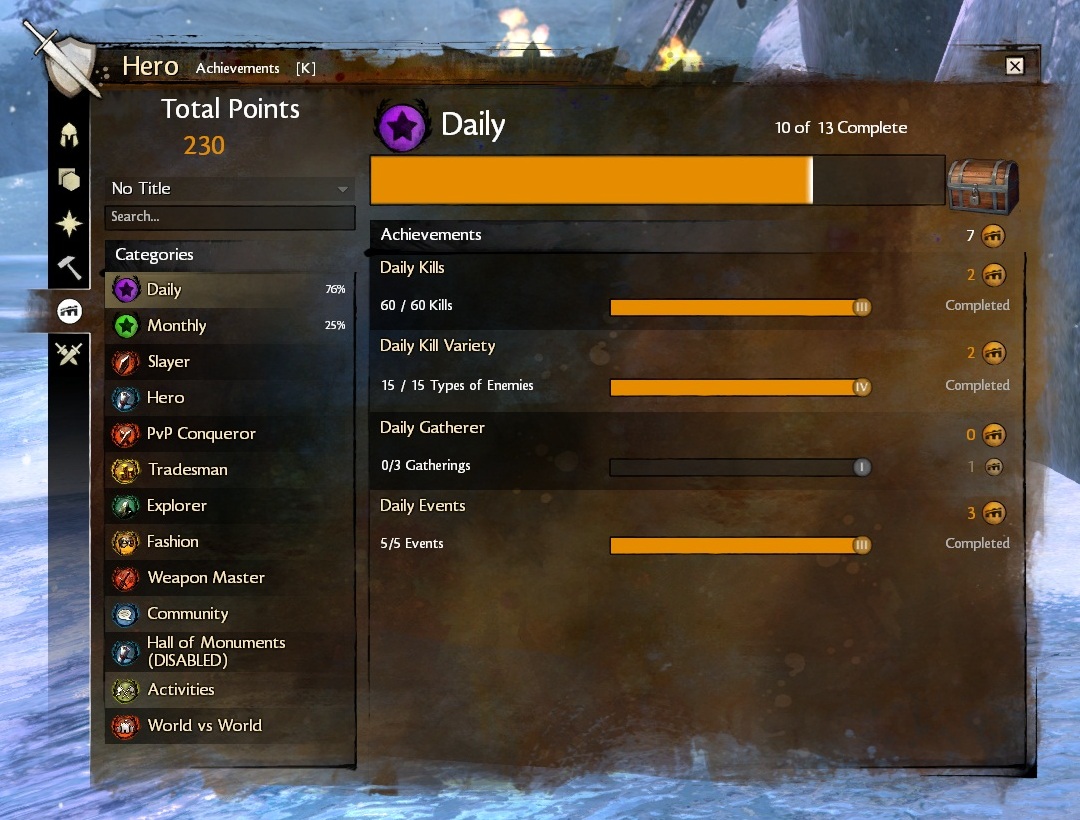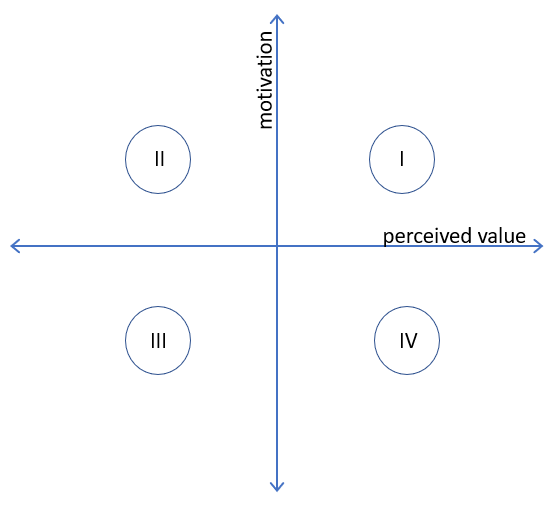Of the many ways in which I have been wasting time over the years, a recent one is a game called Guild Wars 2 (GW2). This game employs some very interesting devices to engage players and make them come back to it. Of these, the most important in my opinion is a type of achievement referred to as Dailies. While this is originally devised for the game to take control over its users, understanding the mechanism enables us apply it in our own lives and use the power of dailies to bring about a positive transformation.
In GW2, Dailies are a set of tasks that you can complete every day to get valuable (in-game) rewards. Of these, the simplest is a daily login, and then a few other tasks that are not difficult to complete but will require that you spend 15-30 minutes in the game. On days when I don’t have much time to play, I say to myself – let me at least complete the dailies, because you can’t do that the next day. Thus, I would spend some time with the game even if I am hard-pressed. Also, when I start playing, I might do a few things more than just complete the daily. So even when I don’t want to play, I end up spending time on it.

This is exactly how I want to trick myself into doing some other things that I want to do. For example, If I want to exercise regularly but have not been successful at it, I can devise a minimalistic set of daily exercise tasks to complete. Say, I define three daily tasks – daily pushups (10 pushups), daily running (run a km), daily stretching (10 minutes of stretching). I can also link some reward to the completion of these tasks. For example, if I do the pushups, it can unlock the post-lunch dessert. If I do all three dailies on a day, I get a virtual coin that I can use to purchase redeem something bigger (say, a movie over the weekend).
The advantage is that every day I would do some basic exercise and not lose touch with it. Also, if I complete the daily stretching, I might be motivated to add in a few kicks or a kata to my practice when my body is already warm. Further, as I do this over several days, it develops into a powerful habit. It is easy to do very heavy exercise on one day and not do anything for many days. This neither benefits our health, nor does it help in building that habit of doing well. This is where dailies make a big difference.
If we look at life, all activities can be divided into four quadrants based on whether we consider it worthwhile or necessary and are self-motivated to do.

Of these, the activities in the third quadrant are the ones we think should not be done and probably won’t do because we don’t like them anyway. So not to worry about them. In the first quadrant, we have activities that we want to do but also enjoy, or are self-motivated. So no problem here either. What we want to use the power of dailies is to move tasks from the fourth quadrant into first and from the second quadrant to third.
Exercise, an example we considered before, is one that most people consider to be important but are not motivated to do. So we try to set up dailies to develop that habit and slowly raise it into the first quadrant. Gaming, on the other hand, might be an activity that is considered unproductive but ends up taking lot of time. If I do want to spend time on it, it is better to spend 3 or 4 hrs on a weekend than systematically play half an hour every day. That way, I get more enjoyment when I actually play the game, I don’t get distracted by the game on other days, and I prevent it from taking root as a habit.
Related reading: